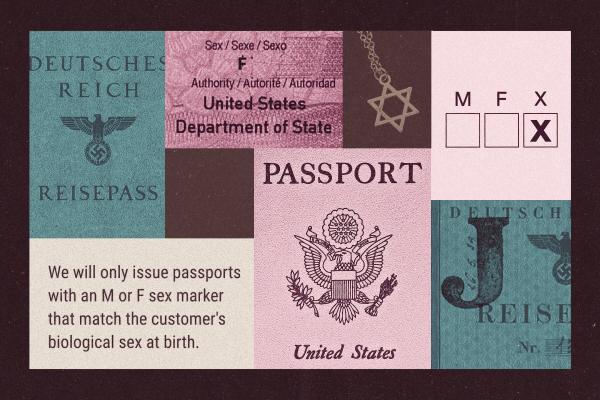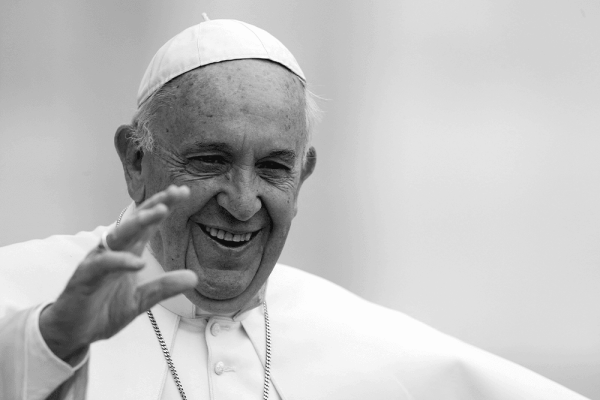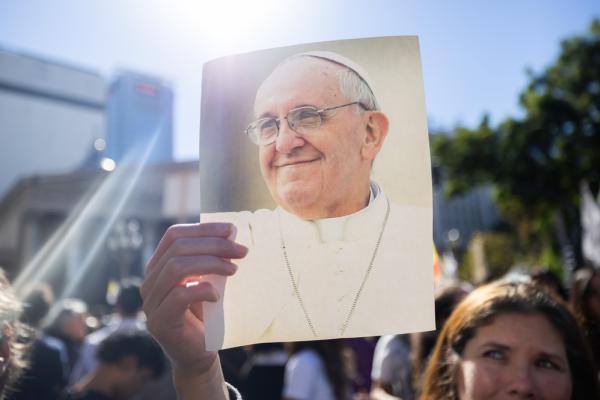In a recent Christianity Today piece titled “Go Ahead. Pray for Putin’s Demise,” columnist Tish Harrison Warren writes about an image she can’t get out of her head: “a Ukrainian father gripping the face of his young son’s lifeless body, which is entirely covered in a blood-stained sheet except for a halo of blond hair.” Warren writes that she “brush[es] up against something like a maternal sense of rage” when she thinks of this “innocent child” who “was violently killed.”
I get it. It’s utterly awful.
But while Warren can’t get this image out of her head, reading her piece left me with some questions I can’t get out of mine.
Warren suggests that an appropriate response to Russian President Vladimir Putin’s invasion of Ukraine is to pray the imprecatory psalms. These psalms demand that God exact judgment against evildoers. I fully believe that praying the imprecatory psalms can be a healthy way to process our deeply felt grief and verbalize our righteous rage in response to injustice. But I find myself asking: What kinds of images evoke such intense grief and provoke such visceral rage? Would we react as strongly if that child’s hair were black and curly? Would we still see his hair as a halo? And if we pray for Putin’s downfall because he tramples the innocent, how should we pray for those elected officials in the United States who uphold white supremacist policies and have no concern for the most vulnerable? What exactly is the connection between praying the imprecatory psalms and promoting peace in our world?
As Hebrew Bible scholar Walter Brueggemann has reflected, the imprecatory psalms put words to our thirst for vengeance. In praying these psalms, we process our rage and give our violent impulses over to God. “O God, break the teeth in their mouths,” one psalmist prays; “let them be like the snail that dissolves into slime” (Psalm 58:6, 8). I’m all for this kind of prayer. I’m all for praying the entire range of the psalms — even the ones that sometimes make us uncomfortable or aren’t necessarily welcome in church. And if there is any occasion for an imprecatory psalm, certainly Russia’s invasion of Ukraine, in all of its brutality and sheer horror, is one of those occasions.
But in a world where white supremacy and other violent ideologies run deep, I don’t think it’s enough to pray imprecatory psalms against particular individuals who cause suffering. I also want to pray imprecatory psalms against ideas, theologies, and systems that perpetuate injustice. I want to pray, God, break the teeth of white supremacy. Tear out the fangs of misogyny, O Lord! Let police violence vanish like water that runs away. May healthcare systems that exclude the poor be like grass that’s trodden down and withers.
Warren writes that “we who are privileged, who live far from war and violence, risk failing to take evil and brutality seriously enough.” But the evils and brutalities of white supremacy, misogyny, police violence, and an unjust healthcare system are all issues that impact the lives of people of color and working-class people in the United States every day.
In her book Eloquent Rage, Rutgers professor of women’s and gender studies and Africana studies Brittney Cooper writes, “Our government does not just wage war abroad. It wages war in Black communities at home, controlling Black folks through surveillance and violence, demanding their submission and compliance. When submission and compliance is not freely offered, the state murders Black men, women, and children, citing the rule of law.”
I do not live in or near Ukraine. And yet I don’t live far from war and violence, either.
Violence perpetrated by the United States government is what inspired the peace movement of the ’60s and continues to inspire nonviolent activists today. In her piece, Warren suggests that praying imprecatory psalms is a corrective to the peace movement’s “naïve understanding of human evil.” But when I think of peace movements, I think of Rev. Martin Luther King Jr.’s 1967 speech “Beyond Vietnam: A Time to Break Silence.”
In taking his stand against the war, King explains that he could not raise his voice “against the violence of the oppressed” without first speaking “clearly to the greatest purveyor of violence in the world today — my own government.” In King’s view, if we’re going to comment on the injustice of the world, we also need to look closely at the United States’ role in perpetuating injustice both at home and abroad. Seen in this light, King’s call for nonviolence echoes the cries of the psalmists: “Away from me, you who are bloodthirsty!” (Psalm 139:19).
As he wrote in his 1960 essay “Pilgrimage to Nonviolence,” King’s commitment to nonviolence was not based in an idealistic view of human virtue but rather stemmed directly from recognizing “the depths and strength of sin” and “the glaring reality of collective evil” that resides in humanity. Nonviolent activism in the tradition of King does not ignore the seriousness of evil but is perhaps the only thing that takes the human capacity for evil seriously enough. The nonviolent movement’s refusal to return violence for violence is a full acknowledgment of humanity’s capacity to commit evil.
In this way, nonviolent practitioners recognize the destructive horror of violence more holistically than those who call for violent retaliation. They do not assume humankind is moving toward a liberal utopia but, rather, recognize that finding peaceful solutions to conflict is our only hope for real change. As writer and activist Rebecca Solnit puts it in her book Hope in the Dark, nonviolent practitioners do not strive for “a perfect world,” but for “a better world.”
Nonviolent activism is not only a reaction to war and violence but also a proactive strategy for change. Through what U.S. theologian Glen Stassen called “just peacemaking,” nonviolent justice initiatives can help establish the conditions needed to prevent and de-escalate conflicts before violence erupts. A critical step of just peacemaking is acknowledging and lamenting injustice — as Russian pastor and general secretary of the Russian Evangelical Alliance, Vitaly Vlasenko, has recently done in an open letter to Christians around the world. Imprecatory psalms can play an important role in moving us from righteous indignation to lament and solidarity.
So, let’s pray the imprecatory psalms, calling on God to judge those intentionally responsible for violence and war. As vividly and viscerally as we call on God to curse those responsible for white children’s deaths, may we also utter the same curses for those responsible for Black and brown children’s deaths. And let’s recognize that if we’re cursing those responsible for violence and murder, we’re not just cursing individuals. We’re ultimately cursing the systems, structures, and ideologies that cause violence and war.
Got something to say about what you're reading? We value your feedback!







